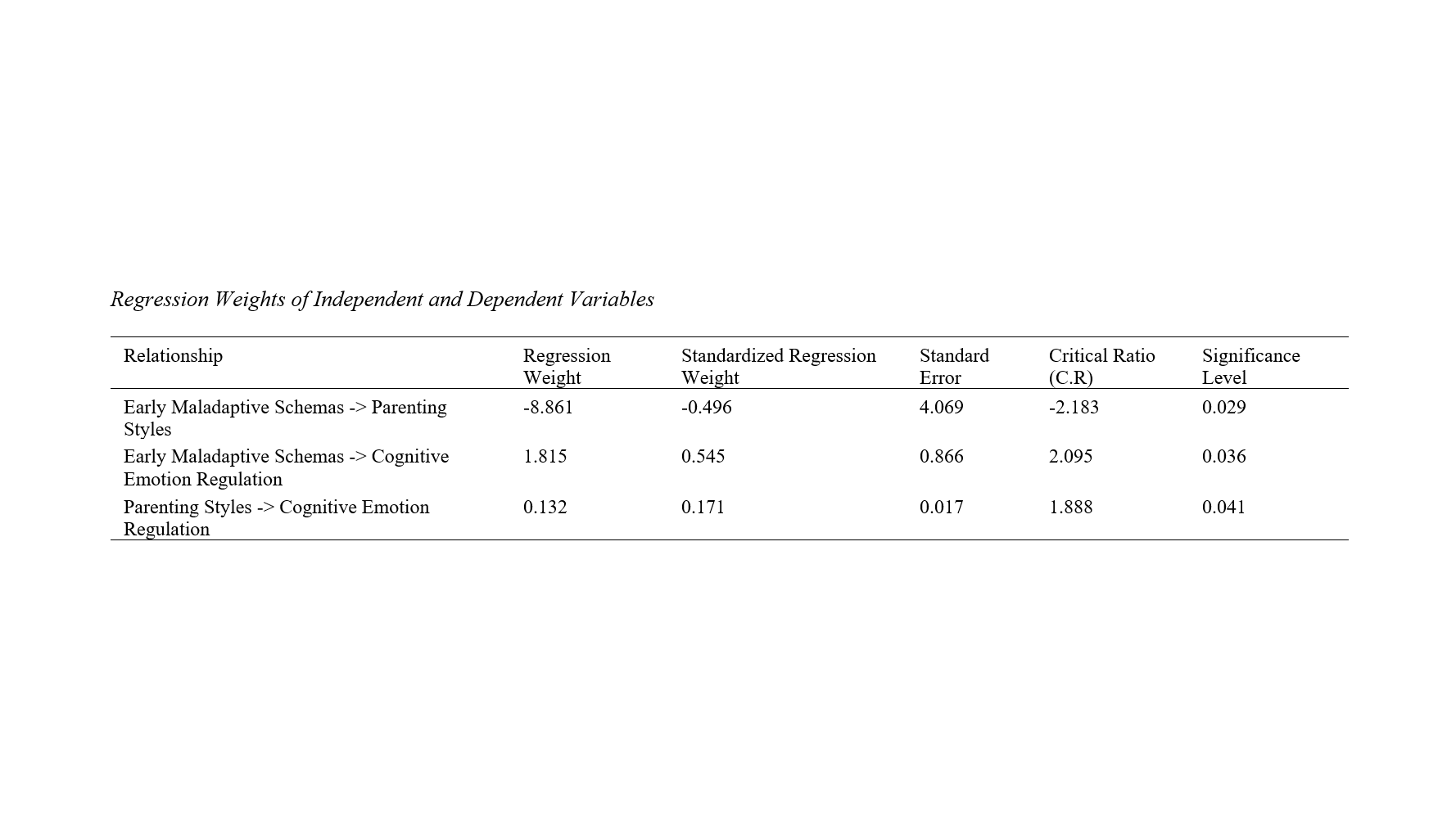The Causal Model of Cognitive Emotion Regulation: Maladaptive Early Schemas and Parenting Styles
Keywords:
Emotion, Cognitive Emotion Regulation, Maladaptive Early Schemas, Parenting StylesAbstract
Objective: The aim of this study was to predict adolescents' cognitive emotion regulation strategies based on the mothers' maladaptive early schemas and their parenting styles.
Methods and Materials This descriptive correlational study involved a randomly selected cluster sample of 406 high school students (comprising 200 girls and 206 boys) from Tabriz. Data were collected using three scales: Young's Schema Questionnaire-Short Form (YSQ-SF), the short form of the Persian version of the Cognitive Emotion Regulation Questionnaire for adults (CERQ-P), and the Family as a Social Context Scale by Skinner. The collected data were analyzed using correlational statistics and structural equation modeling.
Findings: The results confirmed the role of mothers' maladaptive early schemas and their parenting styles in the formation and application of their children's cognitive emotion regulation strategies.
Conclusion: The findings of this study indicated that when parents' schemas are adjusted, it leads to the selection of effective parenting methods, which in turn increases adolescents' use of positive cognitive emotion regulation strategies.
Downloads

Downloads
Additional Files
Published
Submitted
Revised
Accepted
Issue
Section
License

This work is licensed under a Creative Commons Attribution-NonCommercial 4.0 International License.








